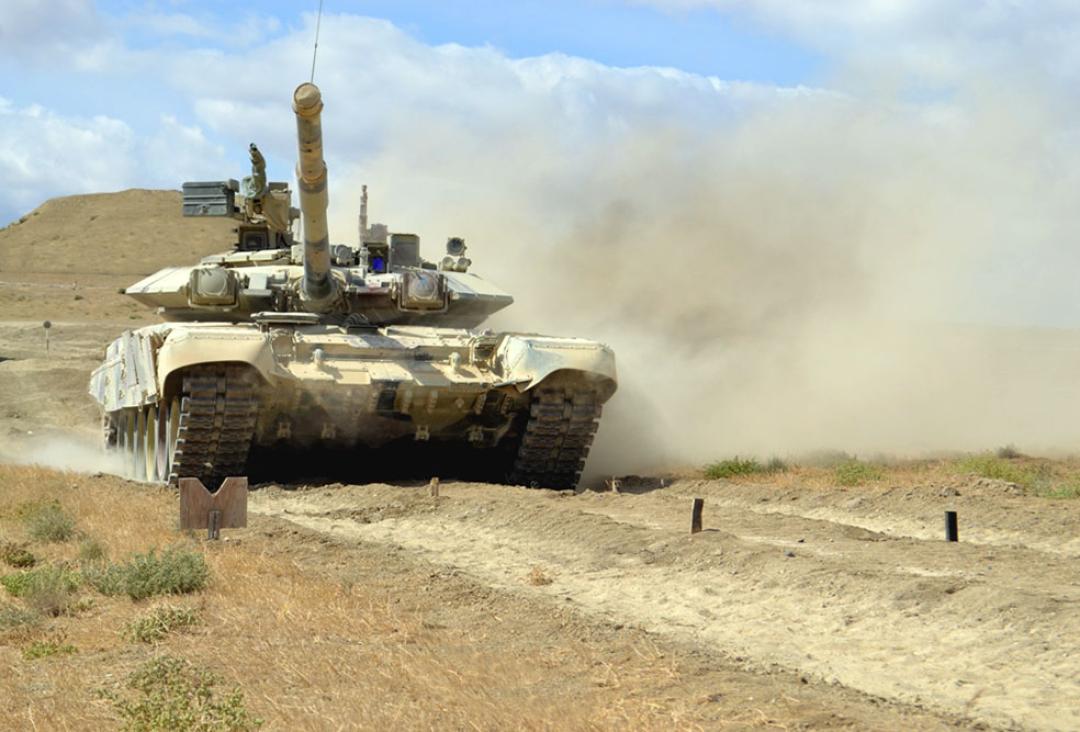
Renewed tensions in Nagorno-Karabakh

For several months of relative calm on the Azerbaijani-Armenian ceasefire line that could have been observed since the "Velvet Revolution" in Armenia, tensions in the conflict zone of Nagorno-Karabakh and along the Azerbaijani-Armenian state border are increasing again. On September 15, the The press office of Azerbaijan's Department of Defense reported a ceasefire violation at the contact line. The Armenian armed forces are said to have attacked the positions of the Azerbaijani army and the civilian population. According to the report, neither members of the military nor civilians were killed during the incident. Some Azerbaijani houses were damaged. The Armenian sources report on an Armenian civilian in the border village of Koti, who was shot by Azerbaijani soldiers on 15 September.
Armenian Prime Minister Nikol Pashinjian said in a speech in Yerevan that Azerbaijan's recent ceasefire violations resulted in the killing of three Azerbaijani soldiers. In its part, the Azerbaijani Ministry of Defense stated that the units of the Azerbaijani army did not suffer any combat losses. Armenian forces lost two soldiers at the frontline, according to official Armenian statements.
Azerbaijan conducted large-scale military exercises last week. These took place between 17 September and 22 September. The supposedly spontaneous maneuver could have been a response to the military exercises "Shant 2018", which had been held by the Armenian side a week earlier. As part of the Armenian maneuver, the Parliament of Armenia even published a message about a declaration of war against Azerbaijan on its official website.
Moreover, martial rhetoric has hardened on both sides in the last two weeks. On 19 September, the Armenian Prime Minister once again traveled to Nagorno-Karabakh, where he spoke of Armenia's willingness to wage war against Azerbaijan if necessary. The day before, Azerbaijani President Ilham Aliyev said Armenia's new political leadership was unaware of its responsibilities. Through their actions and "stupid statements", the Armenian leadership is adding tensions to the ceasefire line.
Of the three states that hold the co-presidency of the OSCE Minsk Group, only Russia has so far commented on developments on the Armenian-Azerbaijani ceasefire line. "We have repeatedly stressed that the solution to the Nagorno-Karabakh conflict can only be achieved by peaceful means and without violence. In this regard, we believe that the most urgent task is for the parties to the conflict to focus on intensifying the negotiation process, as agreed upon at the Geneva Summit in October 2017, "a statement issued by the Russian Foreign Ministry on 19 September said.
Prof. Kamil Salimov from the State University in Baku believes that the "provocation of Armenia at the frontline" is related to the severe political and socio-economic situation in the country. In Armenia, parliamentary elections are in progress, and Armenian Prime Minister Pashinjan, whose government has no economic successes to show for, wants to secure popular support through its tough position in the Nagorno-Karabakh conflict.
The Armenian political scientist, Alexander Iskandaryan, believes that "Azerbaijan wants to influence the position of Armenia in the negotiation process through the shootings on the border, and this corresponds to Baku's negotiating strategy of the last 10 years". However, Iskandaryan does not expect a major escalation.
The Nagorno-Karabakh region belongs to Azerbaijan under international law, but it is occupied by Armenia, which sees itself as a protective power for the Karabakh-Armenians. As a result of the war between Armenia and Azerbaijan in the 1990s, the Azerbaijani population was displaced from Nagorno Karabakh and seven other provinces, which also came under Armenian control.
Currently, the occupied territories are inhabited almost exclusively by Armenians. The Minsk Group of the OSCE under the co-chairmanship of Russia, France and the USA, has mediated since 1994 in the search for a peaceful solution to the conflict, so far without any real success.
See Also


Mirzoyan Meets US Deputy Assistant Secretary Joshua Huck

Azerbaijani President Holds Talks with UAE and German Business Delegations on Economic Cooperation

Grigoryan Confirms Armenia’s Readiness to Dissolve OSCE Minsk Group Upon Peace Treaty Signing

Azerbaijani Official Warns of Ecological Risks to Caspian Sea, Similar to Lake Urmia and Aral Sea

